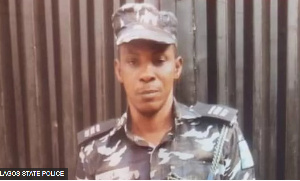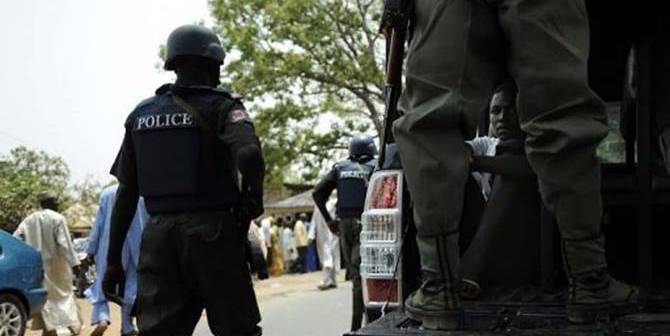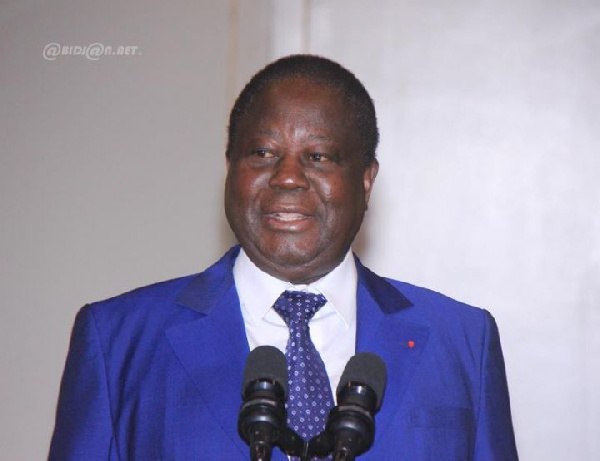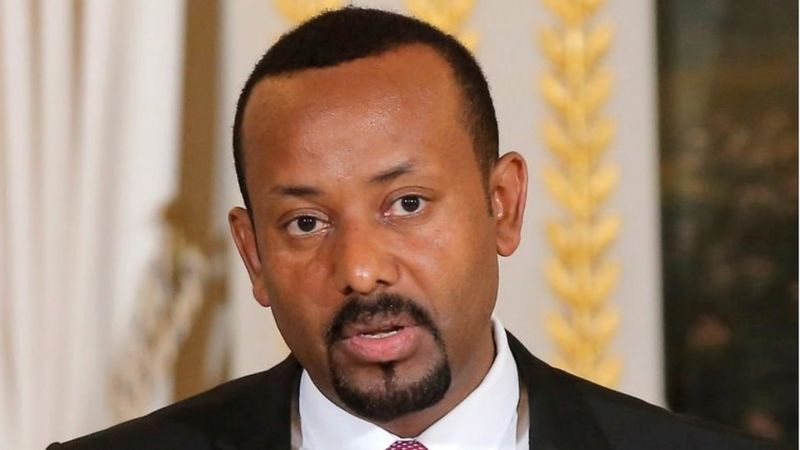News Africa
Russia-Equatorial Guinea: Matters Arising
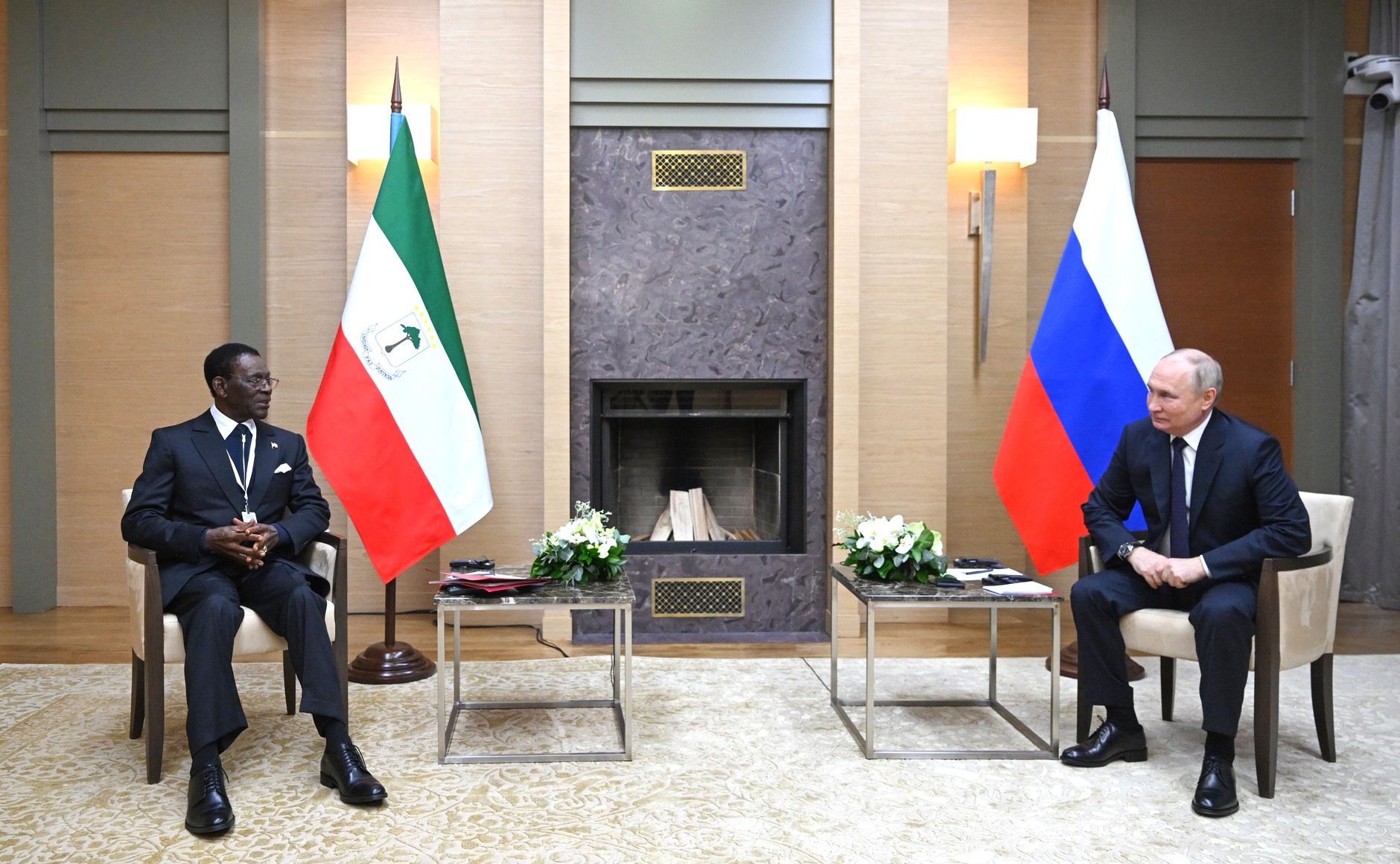
Russian President Vladimir Putin has held talks with Equatorial Guinean President President Teodoro Obiang Nguema Mbasogo, who came on an official working visit to Moscow. The visit could be characterized as historic, and interpreted as one major step to broadly review the political situation in the central African region, and specifically assess the prospects for deepening bilateral cooperation between Russia and Equatorial Guinea.
As the current rotating Chairman of the Economic Community of Central African States (ECCAS), the regional economic bloc uniting Cameroon, the Central African Republic, Chad, the Republic of Congo, Equatorial Guinea, Gabon, and São Tomé and Principe, Teodoro Obiang Nguema’s task, among others, is to oversee political governance and developments relating to regional integration within the seven-nation bloc.
Teodoro Obiang Nguema was at the residence Novo-Ogaryovo November 2, as part of his scheduled trip to the Russian capital, and held talks with President Putin. According to official reports from Kremlin’s website, the negotiations began with a tete-a-tete conversation between the leaders. Then international consultations continued in an expanded format with the participation of members of the delegations of the two countries, Russia and Equatorial Guinea.
According to Putin, Russia and Equatorial Guinea have many overlapping mutual interests. Russia’s relations with Africa are developing very intensively, as evidenced by the results of the Russia-Africa summit held in St. Petersburg. During that summit, delegates from Equatorial Guinea held a number of serious meetings with Russian oil-and-gas and mining companies. But now for Russia and Equatorial Guinea, the other priority is to focus on developing trade and economic ties. The interest and opportunities for developing economic relations are good, as Russian companies are looking forward to working in Africa. “We also talked about security issues, about relations with the countries of the region. We agreed on what and how we will do further in this area,” Putin underscored in his speech.
Taking his turn, Teodoro Obiang Nguema expressed appreciation for the invitation, and further emphasized the fact that the world is facing enormous challenges in the area of international security. Obviously, Russia is a traditional and strategic partner of Equatorial Guinea and the African continent. “And we must keep in mind that Russia contributed and fought for the liberation of African states to achieve political independence. This struggle should not be forgotten. Therefore, at the moment, especially at the UN level, when they want to take certain measures, Equatorial Guinea always votes against such proposals,” Equatorial Guinean president told Putin.
Clearly, Africa is being heavily exploited at the moment. Africa needs to develop. More than a century has passed since Africa achieved independence, but the entire continent is still underdeveloped economically. Not because Africa cannot develop, but because the natural resources are being used – are being exploited. And this hinders Africa’s development, he explained, and added “therefore, when Russia promises to send its businessmen to help Africa develop, we can only say: let them come. And Equatorial Guinea accepts this proposal with satisfaction.”
In addition, the Russian government has decided to reopen its embassy in Equatorial Guinea. Practical cooperation between Russia and Equatorial Guinea will then receive a fresh impetus, facilitate the expansion of cooperation. The implication is that this will lead to political development not only in Equatorial Guinea but also in central Africa as the region faces security challenges in the Gulf of Guinea. Also, Africa is currently suffering from the activities of terrorists. Russia, as a key partner of Africa, must monitor the security of African countries so that they continue to fight against their weak level of development.
Later the delegation had wider separate discussions. The agenda included the state and prospects of bilateral cooperation in various fields, as well as issues of developing Russia’s relations with the countries of the central African region, taking into account Equatorial Guinea’s chairmanship of the Economic Community of Central African States (ECCA).
Participants in Russian-Equatoguinean negotiations (in expanded format) were listed as follows: Teodoro Obiang Nguema Mbasogo – President of the Republic of Equatorial Guinea, Simeon Oiono Esono Angué – Minister of Foreign Affairs, International Cooperation and Diaspora Affairs of the Republic of Equatorial Guinea, and Alejandro Evuna Ovono Asangono – Minister of State for Special Assignments under the Administration of the President of the Republic of Equatorial Guinea.
Job Obiang Esono Mbengono – Minister for the Civil Service Cabinet under the Administration of the President of the Republic of Equatorial Guinea, Victoriano Bibang Nsue Okomo – Minister of National Defense of the Republic of Equatorial Guinea, Teodoro Biyogo Nsue Okomo – Assistant to the President of the Republic of Equatorial Guinea for Protocol Issues and Luciano Nkogo Ndong Ayekaba – Ambassador Extraordinary and Plenipotentiary of the Republic of Equatorial Guinea to the Russian Federation.
From the Russian side: Sergey Viktorovich Lavrov – Minister of Foreign Affairs of the Russian Federation, Alexey Logvinovich Overchuk – Deputy Prime Minister of the Russian Federation, Dmitry Sergeevich Peskov – Deputy Head of the Administration of the President of the Russian Federation, and Press Secretary of the President of the Russian Federation and Yuri Viktorovich Ushankov – Assistant to the President of the Russian Federation.
Nikolay Grigorievich Shulginov – Minister of Energy of the Russian Federation, Dmitry Evgenievich Shugaev – Director of the Federal Service for Military-Technical Cooperation, Alexander Vasilievich Fomin – Deputy Minister of Defense of the Russian Federation, Sergey Nikolaevich Gorkov – General Director of JSC Rosgeologiya and Alexander Alexandrovich Mikheev – General Director of JSC Rosoboronexport.
The two countries signed business agreements, including a declaration of intent on partnership in the field of mining. In many respects, both parties’ lengthy discussions highlighted the teething insecurity arising from political opposition and militant groups and development challenges facing countries in the region. Russia has severally expressed concern over the growing diplomatic activity, examined possible ways to work collectively for economic development, and to improve the lack of large-scale infrastructure to position the private sector as the primary engine for job creation.
At the meeting both parties have identified commitment as the fundamental step along the path to the development in Equatorial Guinea, its regional integration which is essential for the economies of that zone in central Africa.
Teodoro Obiang Nguema currently heads the Economic Community of Central African States (ECCAS), a regional bloc that includes members such as Cameroon, the Central African Republic, Chad, the Republic of Congo, Equatorial Guinea, Gabon, and São Tomé and Principe.
Teodoro Obiang Nguema Mbasogo is an Equatoguinean politician and former military officer who has served as the second president of Equatorial Guinea since the overthrow of his own uncle on 3 August 1979 in a bloody coup d’état. He is the longest-serving president of any country ever and the second-longest consecutively-serving current non-royal national leader in the world (after Paul Biya in Cameroon).
Teodoro Obiang Nguema’s rule was at first considered more humane than that of his uncle. By some accounts, however, it has become increasingly brutal, and has bucked the larger trend toward greater democracy in Africa. According to most domestic and international observers, he leads one of the most corrupt, ethnocentric and repressive regimes in the world.
Several international groups have called for Teodoro Obiang Nguema to observe the following:
* to increase fiscal transparency and accountability by publishing all government revenues, and conducting and publishing annual audits of government accounts, including those abroad, and forcing officials to declare assets.
* disclose natural resource revenues, greatly increase spending alleviation of poverty, to uphold political freedoms and rights
* to allow judicial practices to meet international standards and cease harassing and hindering his critics and further to allow foreign inspectors and groups to travel freely, unhindered and unharassed.
The constitution grants Obiang sweeping powers, including the power to rule by decree. The economy of this small nation continued to struggle under President Obiang, with the country depending mostly on foreign aid to pay its bills. This changed in 1995 when Exxon-Mobil, the American oil giant, discovered oil in the country. Massive offshore discoveries over the past decade have boosted oil to about 380,000 barrels per day, ranking Equatorial Guinea behind only Nigeria and Angola among Sub-Saharan African producers.
Equatorial Guinea, despite its natural resources, majority of the estimated 1.5 million population wallows in abject poverty. Subsistence farming predominates, with shabby infrastructure in the country. Equatorial Guinea consists of two parts, an insular and a mainland region. Equatorial Guinea is the third-largest oil producer in sub-Saharan Africa.
Source: Thepressradio.com|Kestér Kenn Klomegâh

